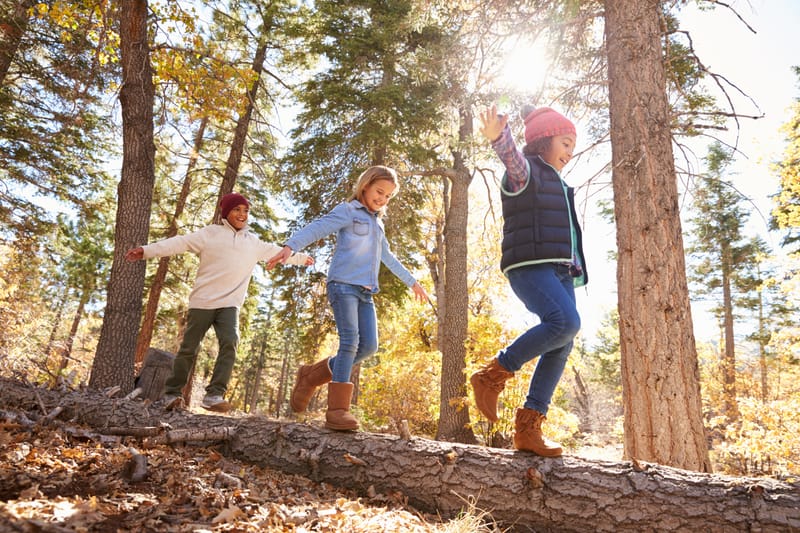Play

Rediscovering the Joy of Play
Play is not just something children do - it is a way of being in the world. It is how we explore, take risks, build relationships, and discover who we are. In our fast-paced, screen-saturated lives, play is often pushed aside, seen as a luxury rather than a necessity. But research and lived experience tell a different story: play is the foundation of learning, creativity, and wellbeing.
When we play, our bodies move, our minds open, and our hearts connect. We learn to collaborate, to solve problems, to handle frustration, and to celebrate success. Through playful experiences - whether climbing a tree, inventing a game, or creating a world from imagination - children develop the physical skills, emotional resilience, and social bonds that will carry them through life.
At Floow for Life, we believe that play is a human right and a vital force for health.
We are working to help communities, schools, and families rediscover the joy of play – not as an extracurricular activity, but as a central part of childhood. Because when we make space for play, we make space for growth, for curiosity, and for the pure, unfiltered joy of being alive.
We build partnerships and open opportunities for schools and other environments, safeguarding the value of play while providing guidance, training, and educational programs. Through the power of play, combined with flow, imagination, nature, and gamification, we create meaningful experiences that support physical, mental, and social development. By integrating these essential elements, we empower children and youth to explore, grow, and thrive in ways that will benefit them throughout their lives.
A clear example of this vision in action is found in the work of Swedish play and game developer Timmy Forss and his company Alternativ Aktivitet, featured in Child Health Network’s newsletter (issue 25.1, January 2025). In the article “Unlocking Health through Play” (read it here ↗), Forss demonstrates how play itself becomes a gateway to health when combined with gamification. His programs turn movement into a joyful, interactive experience, where children practice essential motor skills in a non-competitive, supportive environment. Instead of perceiving exercise as a duty, children encounter it as play – discovering confidence, creativity, and connection along the way.
Looking ahead, Forss envisions more schools embracing playful, non-competitive approaches to physical education – a vision deeply aligned with our belief that when children move through play, they grow not only stronger in body, but also more resilient, imaginative, and joyful in life.
And when we weave together the elements of play, nature, imagination, and gamification, we unlock the conditions for flow - opening doors to a richer, more resilient future for the next generation.
There are several organizations worldwide dedicated to promoting play, movement, nature, and children’s wellbeing – all essential for building a healthy and sustainable society. Some of these include:
Child & Nature Network – working globally to ensure every child has access to nature and its positive impact on health, learning, and wellbeing.
National Institute for Play (NIFP) – inspiring a playful life for all ages and sharing research on the power of play.
Right To Play – using play-based learning to improve health, education, and equality for children in over 15 countries.
Playworks – promoting physical activity, social skills, and leadership through play in schools.
The film below was created by the International Play Association (IPA) and demonstrates the power of play as a lifelong resource for both children and adults - highlighting its vital role in physical activity and growth, as well as its equal importance for mental development, social relationships, and emotional wellbeing.